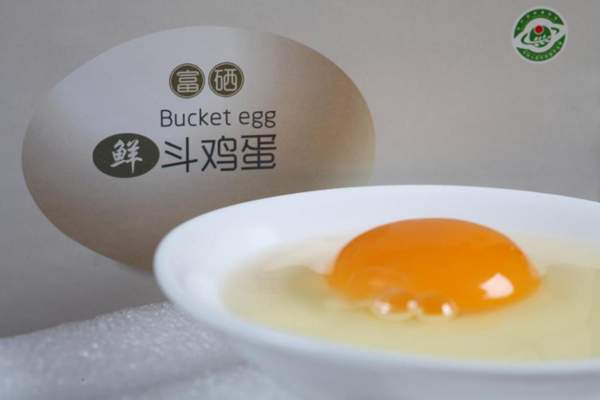Shandong chicken eggs boost rural vitalization
Editor's note: Shandong province in East China has cultivated a range of well-known brands across several sectors including manufacturing, tourism, culture, agriculture and food. The "Friendly Shandong, Remarkable Shandong" brand strategy has increasingly become a key engine for driving the province's high-quality growth. China Daily is publishing a series of stories to display various renowned brands, specialties and handicrafts in Shandong.

The fighting chicken eggs have a large proportion of yolk, which is golden in color. [Photo by Liu Yongxia for chinadaily.com.cn]
The first Ginkgo Culture and Tourism Festival opened on Nov 4 in Juancheng county – in East China's Shandong province – displaying a rich variety of local agricultural and cultural products.
The festival set up stands for agricultural and sideline products, as well as areas for handicrafts and other intangible cultural heritage products, attracting many visitors.
Among the products, the fighting chicken eggs from Yinma town stood out for their high nutritional value and unique taste.
The eggs are being produced by Hongxiang Animal Husbandry Co Ltd, which breeds the Luxi fighting chicken, a native breed of Shandong.
"The Luxi fighting chicken lays only one egg every seven days on average," said a stand owner.
"The eggs have a large proportion of egg yolk, which is golden in color and contains 3.5 times more selenium than ordinary eggs, as well as various vitamins and amino acids," he added.
The stand holder also said that the Luxi fighting chicken was raised in a natural way, with grain and Chinese herbal medicine as feed and without any antibiotics. As a result, the eggs, he said, were delicious and easy to digest.
In recent years, with the support of the local government, Hongxiang Animal Husbandry Co Ltd has adopted a special mode.
The company provides the source breed selection, technical services, product research and development, promotions and sales, while the farmers take care of the breeding process.
This has created a win-win situation for both the company and the farmers and has boosted the economic development of the villagers along with the enterprise, achieving mutual prosperity. (Edited by Fan Yuanyuan)








